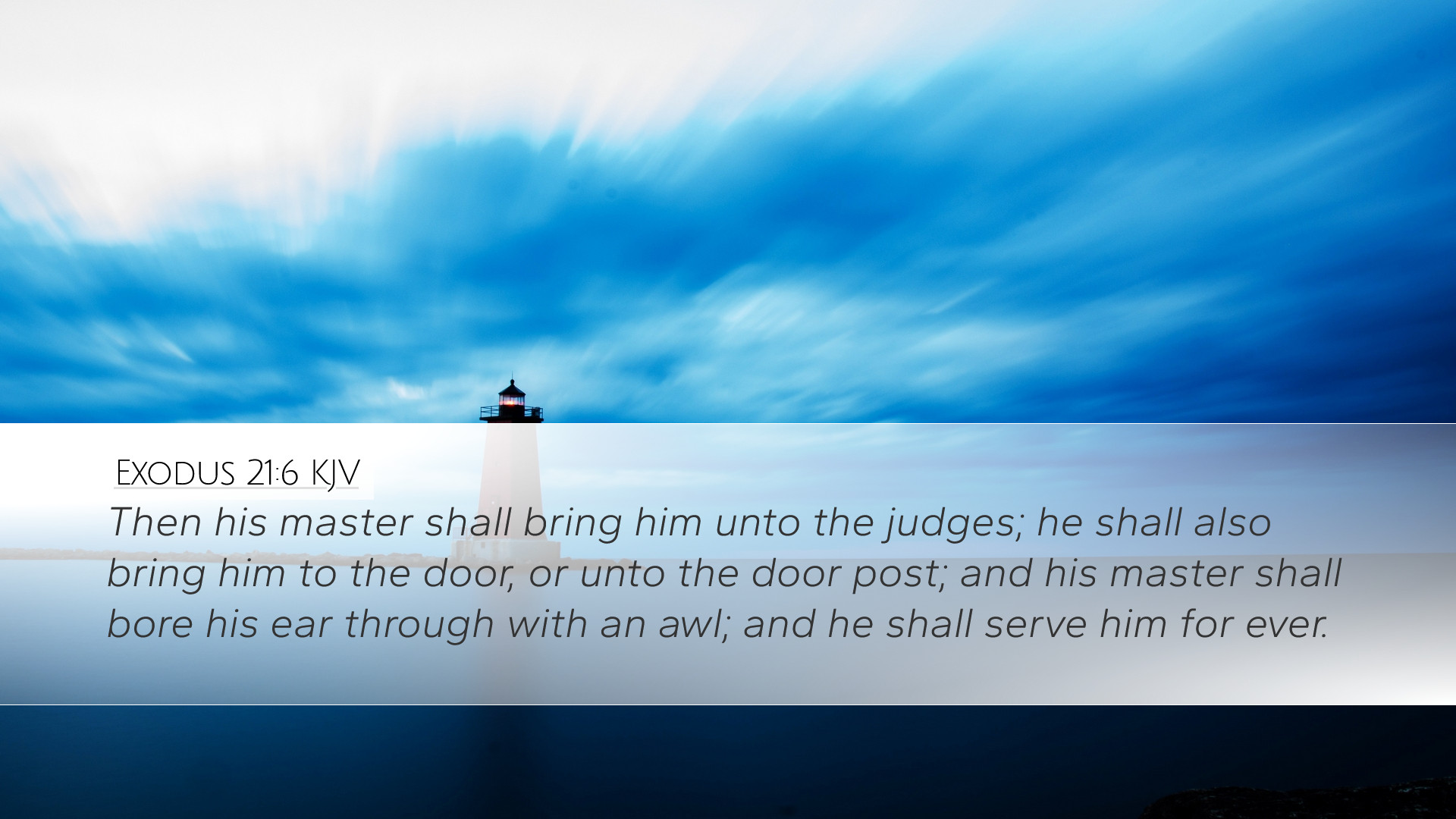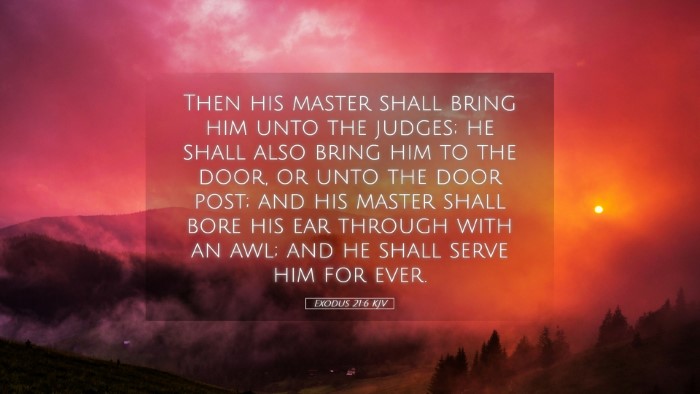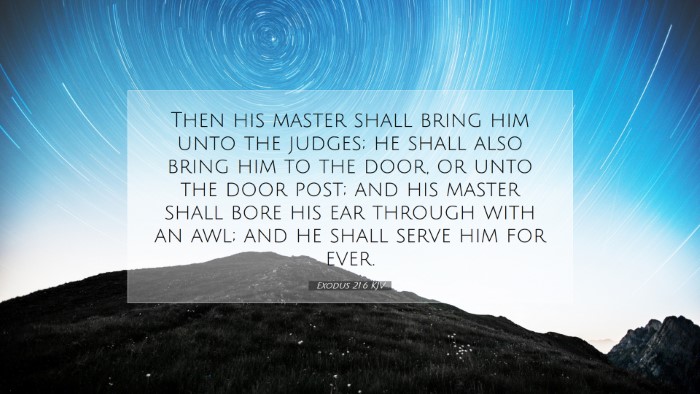Exodus 21:6 - An In-depth Commentary
Bible Verse: "Then his master shall bring him unto the judges; he shall also bring him to the door, or unto the doorpost; and his master shall bore his ear through with an awl; and he shall serve him forever." (Exodus 21:6)
Introduction
This verse is situated within the broader context of laws concerning servitude and social justice in ancient Israel. It serves as a profound illustration of commitment, both from master to servant and servant to master. Building on insights from notable public domain commentaries, we will explore the theological significance and practical implications of this scripture.
Historical Context
The laws regarding servitude found in Exodus are part of the covenant code given to the Israelites. The context reveals a societal framework where servitude was a common practice, often due to debt. The legislation here aims to protect the rights of the servant while providing a means for the master to maintain order within the household.
Commentary Insights
- Matthew Henry: Henry emphasizes the covenantal nature of servitude. He interprets the act of boring the ear as a public declaration of loyalty, akin to an indelible mark of commitment. This ritual signifies that the servant willingly submits to perpetual service, reflecting a relationship rooted in love and respect rather than mere obligation.
- Albert Barnes: Barnes discerns that the procedure is significant not only for its symbolism but also for the societal implications it holds. The act of presenting the servant before judges suggests a legal recognition of the servant's choice, reinforcing the legitimacy of the agreement. Furthermore, it portrays a model of service that can transcend economic transactions, elevating personal relationships.
- Adam Clarke: Clarke highlights the significance of the doorpost as a place of marking one’s commitment. He draws parallels to Jewish customs, where the doorpost represents the threshold of the home—a place of welcome and belonging. This act symbolizes the servant’s acceptance and integration into the family unit, signifying a deep bond forged over time.
Theological Significance
This verse opens the gateway to understanding commitment in the biblical narrative. The servant's choice to remain with the master reflects the overarching themes of love, sacrifice, and community.
Freedom and Choice
The text poignantly illustrates that true freedom involves choice. The decision to serve "forever" is voluntary and underscores the transformative power of love. As stated by Henry, this relationship mirrors the bond that believers share with Christ—voluntarily serving out of love rather than compulsion.
Comparative Covenant Ideas
The narrative invites a comparative exegesis with the New Covenant. Just as the servant finds identity and purpose in servitude, believers in Christ are called to a life of service. Paul reinforces this notion in Romans 12:1, encouraging believers to present themselves as living sacrifices—a commitment that echoes the ritual performed in Exodus 21:6.
Practical Implications
For pastors and church leaders, Exodus 21:6 provides rich material for church teachings on the nature of service and commitment within various contexts such as marriage, leadership, and community.
Service in Relationships
The passage can significantly inform discussions on the nature of servanthood in personal relationships. The commitment of the servant exemplifies the principles of loyalty, selflessness, and dedication. It challenges individuals to consider how they serve in their relationships and the conditions under which they choose to remain committed.
Community and Family Dynamics
In light of Clarke's insights about the doorpost, ministers may dwell on the importance of establishing welcoming environments within their congregations. The image of the doorpost shapes ideas of hospitality and belonging, reminding leaders to foster communities where people willingly choose to commit and serve one another.
Conclusion
Exodus 21:6 invites a multidimensional exploration of servitude and commitment. As biblical scholars and students reflect on this text, it urges a consideration of the deeper implications of voluntary service, community, and love. Both historical and theological lenses illuminate this verse, enriching our understanding of what it means to serve and belong.
May this examination inspire a renewed vision of commitment in all spheres—be it in faith, community, or personal relationships.


